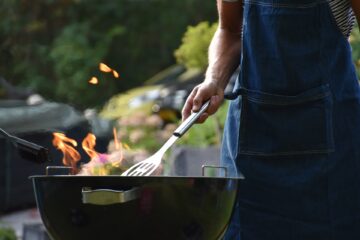Ramen noodles are one of the most popular, easiest, cheapest, and tastiest meals to make. There are different ways to make it depending on your preference. It’ll be a shame to miss out on having it, and this is why the majority of those preparing for a teeth removal or those who have recently had one done often have the question ‘Can I eat ramen noodles after wisdom teeth removal’ on their minds.
Let’s talk about some answers to your most pressing questions as someone who has or is about to undergo wisdom teeth removal. We will also be highlighting some of the recommended foods for patients after wisdom teeth removal.
Can I Eat Ramen Noodles After Wisdom Teeth Removal?
Yes, you can eat ramen noodles after wisdom teeth renewal – with a few conditions. First, when making ramen noodles for yourself or someone who has just done a wisdom tooth removal. It is important to make the noodles soft and not spicy. Soft foods are the only recommended type of foods for patients after wisdom teeth removal because they require minimal chewing and won’t put a lot of pressure on the patient and the extraction area. Spicy foods should be avoided because they will hurt the extraction area.
Second, after making the noodles, they should be left to cool before consumption. Patients might experience temperature sensitivity, so it is generally recommended to avoid hot or icy cold foods during the first few days of recovery.
Third, ramen noodles are best for recovery, especially with some broth. Your diet for the first few days after wisdom teeth removal must consist mostly of soups and broth. So a plate of ramen with broth would do you a lot of good.
Finally, avoid slurping the noodles. It is typically the same as drinking from a straw – any form of suction can rip out the blood clot or stitches in the extraction area which could cause more pain or extend the healing time. It is also very important to be careful with the fork to avoid hurting yourself and chew away from the extraction area.
How Long After Wisdom Teeth Removal Can I Eat Noodles?
You can eat noodles two days after wisdom teeth removal. Note that the timeframe is different for different people because some heal faster than others. It also depends on the factors surrounding your removal procedure. Factors like complexity and the number of teeth extracted can greatly influence your healing time.
Some might need more than two days to be able to chew the noodles and others can chew them the day after the removal. We recommend doing what is comfortable for you and your teeth. If it seems like you can, then you should – otherwise, don’t.
Understanding Post-Op Diet After Wisdom Teeth Removal
After wisdom teeth removal, it is important to follow a specific diet to promote healing and prevent complications. During the recovery period, which can last up to two weeks, it is important to avoid certain types of foods that can disrupt the healing process or cause discomfort.
Hard, crunchy foods such as nuts, chips, or popcorn should be avoided as they can irritate the surgical site and cause pain or bleeding. Similarly, sticky or chewy foods like gum, caramel, or taffy should also be avoided as they can get stuck in the surgical site and increase the risk of infection.
Additionally, spicy or acidic foods like hot sauce, citrus fruits, or tomato-based sauces should be avoided as they can cause discomfort or pain in the mouth. Carbonated beverages, alcohol, and smoking should also be avoided as they can increase the risk of dry socket, which is a painful condition that occurs when the blood clot that forms after surgery becomes dislodged.
Recommended foods after wisdom teeth removal are those that are soft, easy to chew, and nutrient-dense. Some examples of recommended foods include mashed potatoes, yogurt, scrambled eggs, smoothies, soups, and cooked vegetables. These foods are rich in nutrients and provide the body with the energy it needs to heal and recover.
It is important to maintain good oral hygiene after surgery, which includes brushing and flossing gently around the surgical site to prevent infection. If you experience any discomfort, swelling, or bleeding after surgery, you should contact your oral surgeon immediately.
Overall, following a proper post-op diet after wisdom teeth removal is crucial to promote healing and prevent complications. By avoiding hard or sticky foods and consuming soft, nutrient-dense foods, you can ensure a speedy and successful recovery.
Nutritional Value of Ramen Noodles
Ramen noodles are a popular Japanese dish that has gained popularity worldwide. These noodles are made from wheat flour, water, and alkaline salts, which give them their characteristic texture and flavor. In terms of nutritional value, ramen noodles are a good source of carbohydrates, with one serving containing around 200-300 calories.
Ramen noodles are also rich in protein, with one serving containing up to 10 grams of protein. This makes them a good option for individuals who need to increase their protein intake after wisdom teeth removal to promote healing and recovery. Additionally, ramen noodles contain some vitamins and minerals, such as iron, niacin, and riboflavin, which are essential for the body’s overall health.
However, it is important to note that ramen noodles are also high in sodium. One serving of ramen noodles contains around 1,000-2,000 mg of sodium, which is more than half the recommended daily intake for an adult. Excessive sodium intake can cause water retention and increase the risk of high blood pressure, which can be problematic for individuals recovering from wisdom teeth removal.
Another potential issue with ramen noodles is their texture. The noodles are often hard and chewy, which can be uncomfortable or even painful for individuals who have undergone wisdom teeth removal surgery. Additionally, some ramen noodle brands may contain spicy seasoning, which can cause discomfort or pain in the mouth.
Overall, while ramen noodles can provide some nutritional benefits, they may not be the best choice for individuals recovering from wisdom teeth removal. The high sodium content and hard texture of the noodles can be problematic for individuals who need to avoid certain foods after surgery. It is important to consider other soft, nutrient-dense options that are easier to eat and promote healing during the recovery period.
Can I Eat Soup With Noodles After Wisdom Teeth Removal?
Yes, you can eat soup with noodles after wisdom teeth removal. As a matter of fact, that is the recommended way to have noodles. Soup is one of the recommended foods for the first few days after wisdom teeth removal as they require no chewing and will ease the pain in the extraction area. Noodles are recommended only if they are soft, not spicy, and not hot.
Can you slurp noodles after wisdom teeth removal?
It is generally not recommended to slurp noodles after wisdom teeth removal. Slurping noodles requires a considerable amount of sucking and suction, which can put pressure on the surgical site and slow down the healing process. Additionally, slurping noodles can cause discomfort or pain in the mouth, which can make it difficult to eat comfortably.
During the recovery period after wisdom teeth removal, it is important to avoid foods that require a significant amount of chewing or suction. Instead, individuals should choose soft, nutrient-dense foods that are easy to eat and promote healing. Soft noodles like udon or soba noodles are good options, but it is important to avoid slurping them and to chew them carefully.
It is also important to maintain good oral hygiene during the recovery period by brushing and flossing gently around the surgical site. If you experience any discomfort, swelling, or bleeding after eating, you should contact your oral surgeon immediately.
Overall, while it may be tempting to slurp noodles after wisdom teeth removal, it is not recommended. It is important to choose soft, easy-to-eat foods that promote healing and to avoid putting pressure on the surgical site during the recovery period.
Can I eat spicy noodles after wisdom teeth removal?
It is not recommended to eat spicy noodles after wisdom teeth removal. Spicy foods like hot sauce, chili peppers, or curry can cause discomfort or pain in the mouth, which can be problematic for individuals recovering from wisdom teeth removal. Spicy foods can also irritate the surgical site and slow down the healing process.
During the recovery period after wisdom teeth removal, it is important to avoid foods that can cause pain or discomfort in the mouth. It is recommended to choose soft, nutrient-dense foods that are easy to eat and promote healing. Some examples of recommended foods include mashed potatoes, scrambled eggs, smoothies, soups, and cooked vegetables.
If you are craving spicy foods after wisdom teeth removal, it is best to wait until the surgical site has fully healed before consuming them. This can take up to two weeks or longer, depending on the extent of the surgery and your individual healing process.
It is important to follow your oral surgeon’s instructions regarding diet and oral hygiene during the recovery period after wisdom teeth removal. If you experience any discomfort, swelling, or bleeding after eating, you should contact your oral surgeon immediately.
Can I eat soggy ramen after I get my wisdom teeth out?
Soggy ramen noodles may be a better option compared to regular ramen noodles after wisdom teeth removal. Soggy noodles are softer and easier to chew, which makes them less likely to cause discomfort or irritation to the surgical site. However, it is still important to be cautious and take care when eating any food after wisdom teeth removal.
It is also important to consider the seasoning and spice level in the ramen noodles. Spicy seasoning can cause discomfort or pain in the mouth, which can be problematic for individuals who have recently undergone wisdom teeth removal. Additionally, ramen noodles can be high in sodium, which can cause swelling, which is a common side effect of the surgery.
If you are considering eating ramen noodles after wisdom teeth removal, it is recommended to choose options that are soft and easy to chew. Soggy noodles may be a good option, but it is important to be cautious and chew them carefully. It is also important to avoid any seasoning or spices that can cause discomfort or irritation to the surgical site.
Risks of Eating Ramen Noodles After Wisdom Teeth Removal
Eating ramen noodles after wisdom teeth removal can pose certain risks to individuals who are in the recovery period. One of the primary risks is the hard and crunchy texture of the noodles, which can irritate the surgical site and cause pain or bleeding. The noodles require a considerable amount of chewing, which can put pressure on the sensitive area around the extraction site and slow down the healing process.
In addition to the texture of the noodles, the seasoning and spice level in ramen noodles can also be problematic for individuals who have recently undergone wisdom teeth removal. The seasoning in ramen noodles can contain spices that can cause discomfort or pain in the mouth, making it difficult to eat comfortably.
Another concern with ramen noodles is their high sodium content. Consuming too much sodium after wisdom teeth removal can cause swelling, which is a common side effect of the surgery. This can be particularly problematic for individuals who are already experiencing swelling and discomfort around the surgical site.
Finally, consuming ramen noodles too soon after surgery can increase the risk of developing a dry socket. Dry socket is a painful condition that occurs when the blood clot that forms after surgery becomes dislodged or dissolves, exposing the bone and nerve endings in the socket. Consuming hard or crunchy foods like ramen noodles can disrupt the clot and increase the risk of developing dry socket.
Overall, it is important to consider the risks associated with eating ramen noodles after wisdom teeth removal. While they can provide some nutritional benefits, the hard texture, spicy seasoning, high sodium content, and risk of dry socket make them a less than ideal choice for individuals in the recovery period. It is important to choose soft, nutrient-dense foods that are easy to eat and promote healing during this time.
How Do You Get Noodles Out Of Wisdom Teeth Holes?
To get noodles out of wisdom teeth holes, we recommend using a syringe. Patients are supposed to rinse their mouths – especially the extraction area – with a saltwater solution to keep them clean. This should start 24 hours after the removal and then once after every meal or 5 to 6 times a day. But when food is stuck in the hole, there are a couple of suggestions to consider before attempting to remove the food.
First, do not panic. Having food stuck in your wisdom tooth hole could be uncomfortable and weird, but are you even sure it’s food? Blood clots often look like food and one can easily mistake it for food, then proceed to remove it. Removing a blood clot would slow down your healing and cause more pain. So if you’re not sure it’s food that’s stuck in the hole, it’s best to leave it there.
Leaving food in the hole would not cause any damage or infection. The area would continue to heal like normal and eventually the food will come out or your body will find a way to deal with it.
Second, if you are going to remove the food stuck in the hole, you should simply rinse with a saltwater solution first. If that does not work, then you can use a syringe:
- Fill the syringe with the saltwater solution or lukewarm water
- Put the syringe close to the area without actually touching it
- Flush the area with the syringe from different angles to try and get the food out
- Do not push forcefully or you might flush out your blood clot
Remember to check with your dentist before attempting to use a syringe.
Read also: Can You Eat Cereal with Braces?
Alternatives to Ramen Noodles
For individuals who are recovering from wisdom teeth removal, there are many soft and nutrient-dense food options that can be consumed instead of ramen noodles. Here are some alternatives:
- Soft Noodles: Udon or soba noodles are excellent options for individuals who want to enjoy the flavors of Japanese cuisine without the hard texture of ramen noodles. These noodles are soft and easy to chew, making them an ideal choice for those who are in the recovery period.
- Broth-Based Soups: Soups made with nutrient-rich bone broth or vegetable broth can provide a soothing and nourishing option for individuals who have undergone wisdom teeth removal. These soups can be easily consumed, and the broth provides hydration and nutrients to the body.
- Mashed Vegetables: Mashed sweet potatoes, squash, or cauliflower are soft and easy to eat, making them a good option for individuals in the recovery period. They are also nutrient-dense, providing essential vitamins and minerals to the body.
- Smoothies: Smoothies are an excellent option for individuals who want to consume a wide variety of nutrients in an easy-to-eat format. Smoothies made with fruits, vegetables, and protein powder can provide essential vitamins, minerals, and protein to promote healing.
- Soft Fruits: Bananas, avocados, and melons are all soft fruits that can be easily consumed and are rich in nutrients. These fruits can be blended into smoothies or eaten on their own, making them an excellent snack option for individuals in the recovery period.
It is important to choose soft, nutrient-dense options that are easy to eat and promote healing after wisdom teeth removal. By avoiding hard, crunchy, or spicy foods like ramen noodles, individuals can reduce their risk of complications and promote a speedy recovery.
List Of Soft Foods To Eat After Wisdom Teeth Removal
Some of the soft foods you can eat after 48 hours of your wisdom teeth extraction are:
- Pancakes
- Mashed potatoes
- Cake
- Eggs
- Pasta
- Popsicles
- Meatloaf
- Ramen noodles
- Mac and cheese
- Avocado
- Beans
- Oatmeal
- Squash
- Sliced and cut fish or meats
- Sweet potatoes
- Soft sandwiches
- Soft rice
- Steamed veggies
- Sour cream
- Soufflé
- Sherbet
- Soft bread
- Soft cheese
- Risotto
- Polenta
- Mousse
- Melons
- Mangoes
- Ground chicken/beef/turkey
- Doughnuts
- Custard
- Bananas
- Soggy cereal
- Pumpkin
- Tofu
- Casseroles
- Semolina
- Baby food
- Fish
Conclusion
This guide to eating after wisdom teeth removal is your ticket to a healthy and tasty recovery. It is important to read it carefully, follow each recommendation or suggestion and adjust your diet. Your smile would greatly benefit from it.





